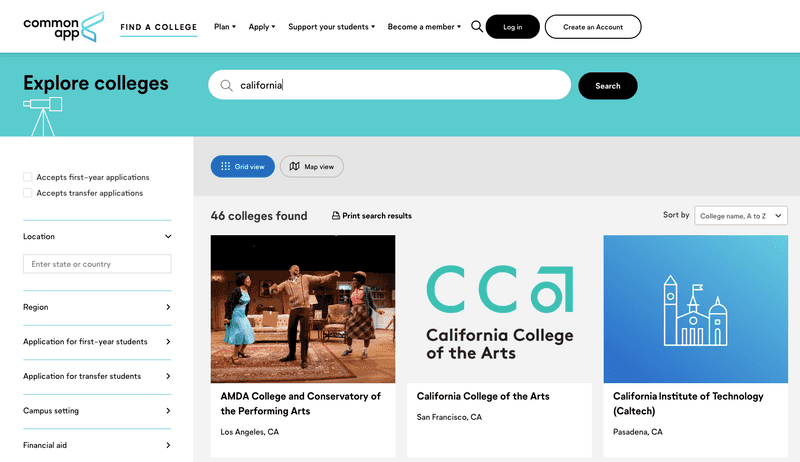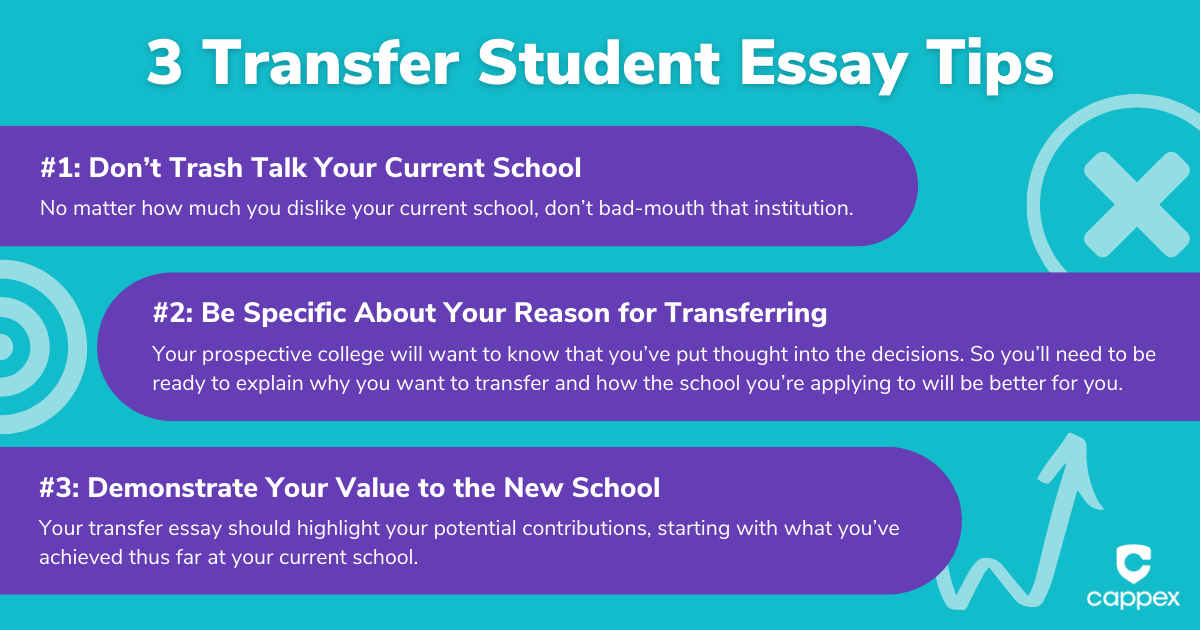When it comes to college entrance exams, the question isn’t just ‘how do I ace the test?’ but ‘which test should I choose to take?’ It’s a significant decision that can shape your college application experience. So, let’s cut through the confusion and set you on the path to success, whether that’s with the SAT or the ACT.
Key Takeaways
The SAT focuses on reading, writing, and math, with an emphasis on data analysis and problem-solving.
The ACT includes English, math, reading, and science reasoning, testing quick thinking and practical skills.
Understanding the format, timing, and content focus of each test can help you decide which aligns best with your strengths.
Colleges do not prefer one test over the other, so the choice depends on which exam showcases your abilities best.
Preparation is key; you should familiarize yourself with the test format, practice with sample questions, and consider taking both exams to see which yields better results.

“New SAT vs. ACT [infographic]” from student-tutor.com and used with no modifications.
Decoding the SAT and ACT: Your Guide to a Strategic Choice
Let’s dive into the world of college entrance exams. The SAT and ACT are the two juggernauts in this arena. They might seem similar at first glance, but they have distinct characteristics that could make one a better fit for you than the other. Your mission is to find out which one aligns with your skills and learning style.
What are the SAT and ACT?
The SAT is a standardized test that assesses your readiness for college, focusing on areas like math, reading, and writing. It’s known for its emphasis on critical thinking and problem-solving skills. On the other hand, the ACT includes these same areas but throws science reasoning into the mix, testing how well you can analyze and interpret data.
Why Choosing the Right Test Matters
Choosing the right test is crucial because it can play to your strengths. If you’re a whiz at analyzing experiments and studies, the ACT might be your ticket to a great score. If you’re more about deep reading and interpreting text, the SAT could be your arena to shine. Plus, feeling comfortable with the test format and content can boost your confidence on test day, which is a huge win.
Digging into the SAT: Format, Focus, and Who It Favors
The SAT is not just a test; it’s a marathon of critical thinking. You’ll need stamina and strategy to navigate its sections effectively. But don’t worry, I’ll guide you through what to expect and how to prepare.
Breaking Down the SAT Structure
The SAT is divided into two main sections: Evidence-Based Reading and Writing, and Math. You’ll tackle passages and questions that measure your ability to understand and apply what you’ve read. In the Math section, you’ll find a mix of multiple-choice and grid-in questions, some of which you’ll have to solve without a calculator. For more insights on the SAT and strategies for success, check out our guide on achieving college application success.
Reading: You’ll read passages and interpret graphical data to answer questions.
Writing and Language: This part tests grammar and usage through the context of editing and understanding passages.
Math: Divided into two subsections, one where you can use a calculator and one where you can’t.
Most importantly, the SAT is not just about knowing the content; it’s about knowing how to take the test. That’s why understanding the structure is your first step to conquering it.
The SAT Emphasis: Reading and Analysis Skills
The SAT puts a heavy emphasis on reading comprehension and data analysis. This means you’ll need to be sharp on not just understanding words and sentences, but also on interpreting graphs and charts. It’s all about applying what you’ve learned in school to real-world scenarios.
Is the SAT Right for You?
Consider the SAT if you’re comfortable with spending more time on fewer, more in-depth questions, particularly in reading and writing. If you have a knack for analyzing text and data, the SAT could be a great fit for you.
Strengths the ACT Values: Speed and Science Reasoning
The ACT is a sprint. It tests not only your knowledge but also how quickly you can use it. With less time per question compared to the SAT, the ACT is ideal for students who can think on their feet. Besides that, the ACT includes a Science section, which isn’t about recalling facts from biology class. Instead, it assesses your ability to interpret data and think scientifically. It’s less about what you know and more about how you apply it.
If graphs, experiments, and hypothesis testing are your jam, the ACT might just be your stage to shine. The science section isn’t just for future scientists; it’s for any student who can analyze information and draw conclusions effectively.
ACT: The Perfect Fit for Whom?
Are you the kind of person who finds clarity in chaos, who can sift through data and emerge with answers swiftly? If that sounds like you, then the ACT might be your match. It’s also well-suited for those who prefer a broader range of questions over deep dives into a few. If you’re strong in math and science and can keep a brisk pace, the ACT will play to your strengths.
Head-to-Head: SAT vs. ACT Features Compared
So, how do these tests stack up against each other? Let’s compare them feature by feature to give you a clearer picture. The SAT is like a strategic game of chess, while the ACT is more like a quick-paced round of trivia. Each test has its own quirks and focuses, and knowing these can help you decide which one feels more like home turf.
One of the biggest differences lies in their structure and timing. The SAT gives you more time per question, which is great if you like to mull things over. The ACT, with its Science section and quicker pace, might appeal to the rapid-fire problem solver in you. Then there’s the scoring – a whole different ball game for each.
Let’s break it down further, so you have all the facts to make an informed decision.
Test Length and Timing Differences
The SAT clocks in at around 3 hours, not including breaks or the optional essay. The ACT is slightly shorter at 2 hours and 55 minutes, plus 40 minutes for the essay if you choose to take it. But here’s the kicker: the ACT has more questions, which means you’ll have to work faster. The SAT offers a bit more breathing room with fewer questions spread over the same amount of time.
Scoring Systems: Navigating the Numbers
Scoring for the SAT and ACT might seem like they’re from different planets. The SAT scores range from 400 to 1600, combining your Math and Evidence-Based Reading and Writing scores. The ACT, on the other hand, gives you a composite score from 1 to 36, which is an average of your scores from all four sections.
Don’t get tangled up in the numbers game, though. What’s a ‘good’ score depends on the colleges you’re aiming for. Some might find a 1200 on the SAT impressive, while others are looking for 1400 and up. The same goes for the ACT, where one school’s 28 could be another’s 32.
Subject Domains: What Each Test Covers
Both tests cover a lot of the same ground – think of them as two different paths to the same destination. The SAT and ACT both have Reading, Math, and Writing/English sections. However, they approach these subjects from different angles.
The SAT has a stronger emphasis on evidence-based reading and writing, while the ACT includes a Science section and tends to have more straightforward math questions. So, when choosing, consider not just what you know, but how you think and solve problems.
SAT: Reading, Writing and Language, Math (with and without a calculator)
ACT: English, Math, Reading, Science Reasoning, and an optional Writing (essay) section
Remember, the best way to get to know these tests is to take practice exams. They’re like dress rehearsals for the real thing, and they’ll show you which test makes you feel like a star.
Unique Sections: Essay and Science Rundown
The essay sections for both the SAT and ACT are optional, but they’re quite different. The SAT essay asks you to analyze a passage and discuss how the author builds an argument. It’s all about critical thinking and analysis. The ACT essay, however, asks you to evaluate multiple perspectives on an issue and argue your own point of view. It’s a test of your ability to debate and persuade.
And then there’s the ACT’s Science section, unique to this test. It’s not about memorizing the periodic table but rather interpreting scientific data and experiments. If that’s where your strengths lie, the ACT could be your best bet.
Calculator Policy and Math Content
Math-wise, both tests cover similar territory, but the SAT has a no-calculator section, which can be a game-changer if you’re reliant on your trusty calculator. The ACT allows a calculator for all math questions, which can be a relief if crunching numbers manually isn’t your thing.
Also, the ACT includes a few more advanced math concepts than the SAT. So if you’re a math wizard who loves your calculator, the ACT might just be your playground.
The Decision-Making Dilemma: Picking Your Pathway
Now comes the tough part: deciding which test to take. But don’t worry, it’s not as daunting as it seems. Think about your skills, your academic strengths, and how you handle time pressure. Do you excel at interpreting data and working at a fast pace? Or are you more about deep analysis and taking your time to puzzle through questions?
There’s no right or wrong answer, just the best fit for you. And remember, you can always take both tests to see which one you prefer.
Evaluating Your Strengths and Weaknesses
Self-awareness is key here. Are you a math person, or do words make you tick? Do you get a thrill from analyzing scientific data, or does the thought of a no-calculator math section fill you with excitement? Your personal strengths and weaknesses will guide you towards the test that will let you shine.
Understanding College Preferences and Requirements
Let me clear up a common myth: colleges don’t have a preference for the SAT or ACT. They’re both widely accepted, and admissions officers are really just looking at how well you did. So take the test that you feel you can ace, not the one you think colleges want to see.
Test Availability and Regional Popularity
Both the SAT and ACT are offered several times a year, but there might be differences in availability depending on where you live. Some regions have a stronger preference for one test over the other, so take that into account when making your decision. Besides that, it’s also worth considering your schedule – you’ll need enough time to prepare for whichever test you choose.
Planning Your Test Dates and Study Schedule
Once you’ve chosen your test, it’s time to plan. Look up the test dates and work backwards to create a study schedule. Give yourself plenty of time to prepare; cramming isn’t going to cut it for these exams. Consistent, focused study will get you the results you’re after, and don’t forget to include full-length practice tests in your prep.
Remember, this is about playing the long game. A steady, well-planned approach to your test prep will take you far. And whether you choose the SAT or ACT, know that you’re taking a step towards your college dreams.
Winning Strategies: Acing Your Chosen College Entrance Exam
Developing a Study Plan Tailored to Your Test
Once you’ve decided which test to take, it’s time to create a study plan. This isn’t a one-size-fits-all situation; your study plan should reflect your personal learning style and the test you’ve chosen. For example, if you’re preparing for the SAT, you might focus more on vocabulary and reading comprehension, while for the ACT, you might spend more time on science reasoning and quick math drills.
Start by setting a study schedule that’s realistic and stick to it. Consistency trumps cramming every time. Also, mix up your study methods to keep things fresh – try flashcards, online quizzes, and group study sessions. And don’t forget to take regular, timed practice tests to track your progress and get comfortable with the test format.
Remember, the goal is to build confidence and familiarity with the test, so when the big day comes, you’re ready to tackle it head-on.
Test-Taking Tips and Common Pitfalls
Test day can be nerve-wracking, but I’ve got some tips to help you stay calm and collected. First, make sure you know the logistics: where your test center is, what time to arrive, and what to bring with you. A good night’s sleep and a healthy breakfast can also do wonders for your focus and energy levels.
During the test, time management is crucial. Don’t get bogged down on any one question; it’s better to move on and come back to it if you have time at the end. Also, make educated guesses if you’re unsure – there’s no penalty for wrong answers on either test.
Most importantly, stay positive and remember that your test score is just one part of your college application. You’ve got this!
Know the test center location and arrival time.
Bring necessary materials, like your admission ticket and photo ID.
Get plenty of rest and eat a good breakfast.
Manage your time wisely during the test.
Stay positive and keep things in perspective.
Utilizing Resources: Books, Tutors, and Practice Exams
There are a plethora of resources out there to help you prepare for the SAT or ACT. From study books to online courses, tutors, and practice exams, you’ve got options. Books like ‘The Official SAT Study Guide’ or ‘The Official ACT Prep Guide’ are great starting points because they come straight from the test makers themselves. For more detailed strategies, consider exploring resources on achieving college application success.
If you’re looking for a more personalized approach, consider hiring a tutor who can tailor their teaching to your needs. And don’t forget about practice exams – they’re invaluable for getting a feel for the test’s format and timing.
Frequently Asked Questions
Do colleges prefer the SAT over the ACT?
No, colleges do not prefer one test over the other. They’re both widely accepted and considered equally valid for college admissions. It’s about which test showcases your strengths and abilities best.
What’s most important is how well you perform on the test you choose. Focus on achieving a score that reflects your best effort and aligns with the admission criteria of the colleges you’re interested in.
Can I take both the SAT and ACT?
Absolutely, you can take both the SAT and ACT if you’re unsure which test suits you best. Many students find that they perform better on one test than the other, and taking both can give you a better idea of where your strengths lie.
Consider taking a practice SAT and ACT to compare your scores before deciding which one to focus on. This can save you time and resources in the long run.
Just remember that preparing for both tests will require extra time and effort, so plan accordingly.
How do I decide if the SAT or ACT is better for me?
To decide which test is better for you, consider your academic strengths and test-taking skills. Do you excel in science and quick problem-solving? The ACT might be up your alley. If you’re strong in reading, writing, and have a knack for data analysis, the SAT could be a better fit.
Also, take practice tests for both the SAT and ACT. Your performance on these can help you determine which test aligns more closely with your abilities.
When should I start preparing for the SAT or ACT?
It’s best to start preparing for the SAT or ACT at least three to six months before the test date. This gives you ample time to familiarize yourself with the test format, content, and question types. It also allows you to identify your weaknesses and improve on them without feeling rushed.
Earlier preparation can be beneficial, especially if you plan to take the test more than once to improve your score.
How many times can I take the SAT or ACT?
You can take the SAT as many times as you want; there are no restrictions. The same goes for the ACT, although both tests recommend limiting the number of attempts. Most students find that two or three tries are sufficient to reach their target scores.
Colleges typically consider your highest score, so taking the test multiple times can work to your advantage. Just be mindful of test fatigue and the law of diminishing returns – at some point, taking the test additional times may not yield significant score improvements.
In conclusion, whether you choose the SAT or the ACT, the key is to prepare thoroughly, understand the format and content, and approach the test with confidence. By evaluating your strengths, utilizing the right resources, and developing a solid study plan, you’ll set yourself up for success on whichever test you decide is best for you. Good luck, and remember, this is just one step on your journey to achieving your college dreams!




